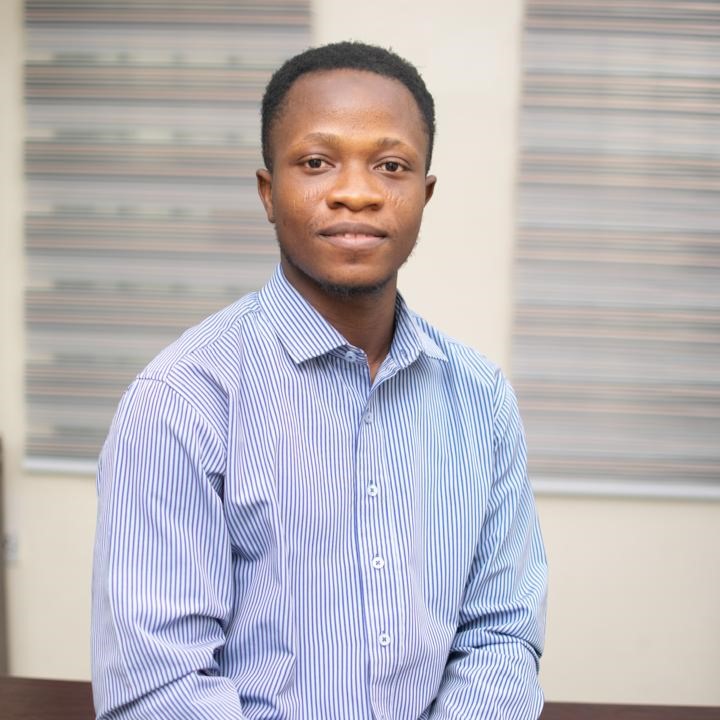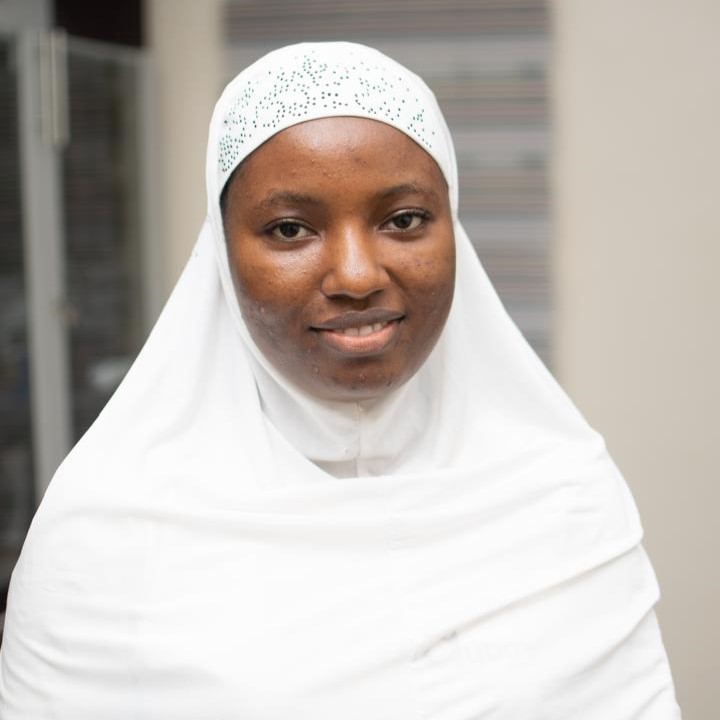Behind every autistic child in Nigeria is a family fighting battles most people never see, with love, pain, hope, and little support. Love meets challenges every day in these homes. Sodiq Mojibola and Fatimah Idera tell their stories.
Every morning, Taiwo Adeshola braces herself for another day with her young client, an 11-year-old boy who lives in a world many struggle to understand. As his therapist for over a year, she has learned to read his silence and decode his meltdowns.
When Ms Adeshola is around her patient, he behaves well and follows instructions. But as soon as she leaves, he engages in self-injurious behaviour like biting himself, especially when he’s alone.
Despite a year of therapy with Ms. Adeshola, there’s been no noticeable improvement. A significant challenge is his fascination with wires and electricity without understanding the dangers or responding to pain.
“He doesn’t look like someone who is autistic, except when he starts to throw tantrums and have meltdowns. We are trying to work with him concerning touching wires because he doesn’t know the dangers or respond to pain,” the therapist told DevReporting.
She stressed the need for his parents to enroll him in vocational training, perhaps in electrical engineering, so as to turn his fixation into purpose.
For Kate Agina, raising her special child has meant embracing a life of humility and surrender. She received news of her child’s diagnosis with sadness.
The child was born in 2003 and had a different developmental path compared to others. With help from hospital care and medications, the child is now able to walk and is showing improvement. According to Mrs Agina, since her son’s diagnosis in 2003, finances have been a relentless burden.
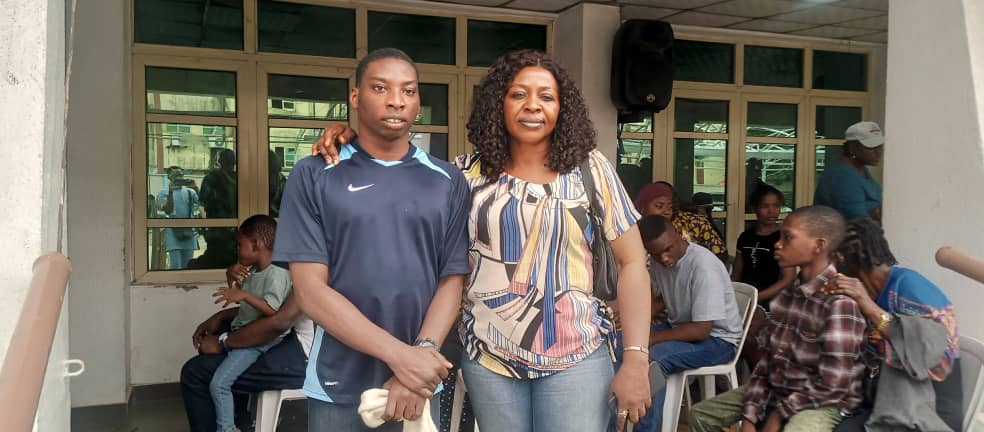
“It’s a work to be done with love. You don’t expect a special child to act like a normal child, so one has to take care of them with one’s heart and love. No one can take care of them as you will. So, you have to do it with humility, and it is not something you do to stress yourself because it’s a very long journey and process,” she said.
What is Autism Spectrum Disorder?
American Psychological Association (APA) describes autism as a neurodevelopmental disorder characterised by markedly impaired social interactions and verbal and nonverbal communication, narrow interests, and repetitive behaviour.
The manifestations and features of the disorder, according to the association, appear before age three but vary greatly across children based on developmental level, language skills, and chronological age. These manifestations may include a lack of awareness of the feelings of others, impaired ability to imitate, absence of social play, abnormal speech, abnormal nonverbal communication, and a preference for maintaining environmental sameness among others.
While autism is a global public health concern affecting approximately one in 100 children worldwide, its prevalence in Africa is not well-established, with varying estimates reported in different African countries. Awareness and support systems are still developing in Nigeria, as many families face a long, expensive, and emotionally draining journey to get their children the help they need.
Experts have maintained that autism is not a disease but a different way of thinking, perceiving, and interacting with the world.
READ ALSO: From work-site clinic to 50-bed hospital network, Nigeria’s health firm sets new standard in Africa
Understanding their needs
At Heart and Soul Centre for Children with Special Needs in Ibadan, Oyo State. Fatima Qaadri, a programme coordinator at the non-profit organisation, sees children’s struggles daily. But she’s more worried about the rising costs of therapy, hospital visits, and medications, noting that essential equipment like trampolines, balance boards, or walking frames remains out of reach.
“Other NGOs come once in a while with biscuits, but these children need daily nutrition, therapy, and medication to build their memory and cognitive function,” Ms Qaadri explained. “Their intake assessments reveal each child’s uniqueness. No two children with the same diagnosis are the same. They might have similar symptoms, but they are not the same.”
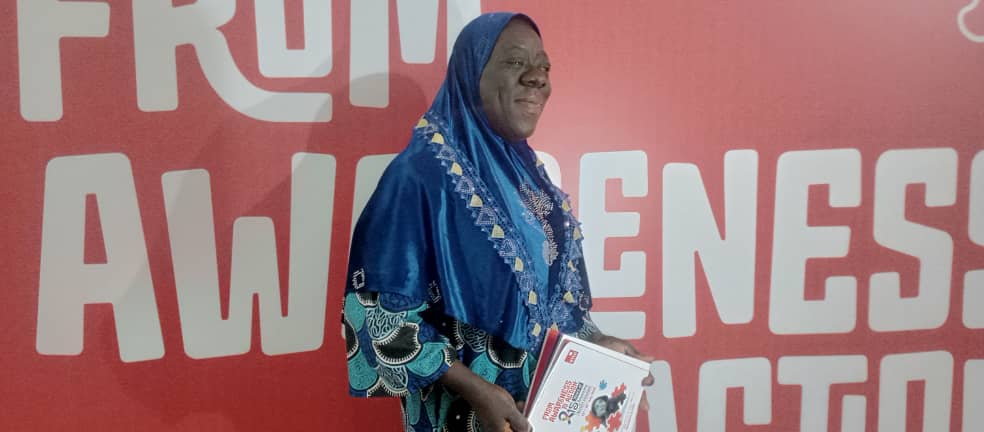
To help the children, Ms Qaadri’s team created individualised educational plans (IEPs) for each child, closely monitoring their progress. IEPs detail the child’s specifics like age, family position, personality, and needs areas such as physiotherapy, occupational therapy, or behavioral therapy.
This approach, by her own account, helps to identify areas for intervention as the organisation sees their hidden talents emerge when focusing beyond disabilities.
An example is Adisa Nafisat, who has autism and cerebral palsy, studying at Emmanuel Alayande University of Education in Oyo town.
More stories of hope
Happiness Oredipe, a parent of an autistic child, recalled when her son was diagnosed with learning disability at age three. At that time, according to her, he could neither speak nor communicate.
“Today, after two years of therapy, he talks, understands, and socialises freely,” she said, explaining that as a tutor, she draws from her teaching experience to support him, believing deeply that daily intentional care makes all the difference.
She advised other parents and guardians to move beyond the diagnosis and take every day as it comes. “Also, educate other people around him to understand him, as that will help because you cannot do it alone, you need your community,” she added.
After 15 years of championing autism awareness in Nigeria, the Guaranty Trust Holding Company (GTCo) annual autism conference this year made a definitive turn from raising awareness to fostering tangible inclusion, bringing together experts to engage parents and caregivers on their roles in the management of the condition.
The 2025 edition, held at Muson Centre, Lagos spotlighted a new frontier on developing education and support systems that are not only inclusive, but deeply personalised. The conference was followed by a free one-on-one family consultation clinic, which took place from Adeyemi Bero Auditorium, Alausa.
Under the theme “From Awareness to Action: 15 Years of Advancing Autism Inclusion,” the experts which included behavioural analysts, educators, caregivers, and advocates gathered to interrogate what true inclusion means, and how systems must evolve to meet autistic individuals where they are.
Individualised support over generalisation
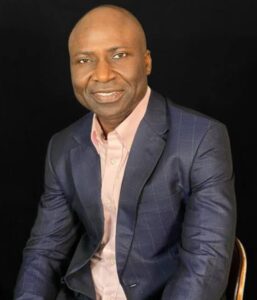
At the conference, a board-certified behaviour analyst, Lanre Duyile, underscored the need to treat every child on the autism spectrum as unique, despite sharing the same diagnosis.
He introduced the ABC model – Antecedent, Behaviour, and Consequence as a framework to understand behaviour as a form of communication, often tied to unmet emotional or sensory needs.
According to him, “any behaviour that helps them avoid what we want them to do deserves an assessment.”
Mr Duyile emphasised that while avoidance behaviours may appear similar, they may serve different functions, such as seeking attention, escape, tangible rewards, or sensory input. “Once the appropriate function is identified, select an appropriate intervention.
“Five people may have the same autism diagnosis, and they all present very differently. The avoidance behaviors may be similar but serve different needs. This is why each client deserves an individualised assessment to determine where they are on the spectrum, how they experience autism, and how we should work with them.
“If attention is the function, give attention before challenging behavior or teach appropriate ways to seek attention. If escape is the function, teach appropriate ways to seek escape, or program escape and label it as expected. If tangible is the function, teach appropriate ways to seek tangible items, and if sensory is the function, teach appropriate ways to seek sensory input not contingent on the inappropriate behavior.”
The call for personalised understanding was also echoed by Georgiana Koyama, a cultural innovator and social advocate based in Detroit, who rejected one-size-fits-all solutions and deficit-based perspectives.
READ ALSO: From work-site clinic to 50-bed hospital network, Nigeria’s health firm sets new standard in Africa
Ms Koyama championed a holistic and asset-framed approach over deficit thinking, as she stressed the need for compassion in practice, amplifying the voices of neurodivergent individuals, and removing systemic barriers.
Tech, AI tools for emotional support
Technology also plays a growing role in this paradigm shift as experts give insightful artificial intelligence (AI) applications that can aid the understanding and treatment of the spectrum.
An educator, autism advocate, and researcher, Oyeyemi Adako shared how AI-powered tools like InnerVoice and TeachTown are enhancing support for non-verbal learners and streamlining educational monitoring for teachers. Her approach targets children often left behind in traditional classrooms.
She explained that AI can be used to suggest personalised tasks, translate visuals into speech for nonverbal learners as well as alert educators when students disengage. “AI gives us the ability to adapt education to each learner.”

These systems, she noted, can bridge communication gaps and make learning more responsive. Corroborating her point, licensed and board-certified behaviour analyst Camiella Hay advocated for the use of visual tools to aid emotional regulation and expression in autistic children. She warned against overly rigid teaching styles that prioritise obedience over autonomy.
Equipping children with vocational skills
A clinical psychologist and qualified behaviour analyst, Benedict Sama spoke passionately on nurturing executive function in neurodivergent individuals. “Let the child do what they love, it grows into purpose,” he said.
He emphasised hands-on experiences, including internships and vocational programmes, as key to teaching soft skills such as task initiation, organisation, and communication among individuals on the autism spectrum.
Similarly, a specialist in early childhood and special education with 15 years of experience supporting children in Nigeria and the United States, Bernadette Kilo encouraged families to demystify roles and engage children with real-life concepts such as money management and science among others.
“It could be something as basic as steps they need to brush their teeth, it will grow into executive functioning which is mostly deficit in children with autism. They have to learn to plan, organise and execute,” Ms Kilo stated.
On her part, a professor of psychiatry and public health, Mashudat Bello-Mojeed underscored the importance of early childhood vocational education.
READ ALSO: From work-site clinic to 50-bed hospital network, Nigeria’s health firm sets new standard in Africa
“Ages 4-10 is an early childhood period and there are many age-appropriate skills called survival skills. In this age group, we use specific routines, functional tasks, play methods and reward systems. For fine motor development, use small muscles like fingers in activities like picking or sorting beans, rice from stone or pencil handling. For gross motor skill, bigger muscles are used in activities like running, playing ball, and kicking among others.”
She emphasised that caregivers and families must be actively involved.
Shifting from control to connection
Throughout discussions, experts were united in the view that societal perceptions and institutional frameworks around autism must evolve.
Mr Duyile pointed out that “adults often seek compliance, not connection,” highlighting the risk of suppressing the child’s natural way of interacting with the world.
“The emphasis, instead, should be on recognising communication differences and building relationships rooted in empathy and patience.”
A specialist in early childhood and special education, Afeez Abdulrasak explained that in a quest to get a cure for autism, some think that spiritual intervention is going to work as they fast and pray.
He noted that some other people go into extreme cases of looking for medical solutions. “Those are advisable, but we need to understand that when a condition is called neurological, it means it has to do with the brain. In the brain, the functionality is not enhanced with drugs, it is enhanced with support, and when trying to enhance it, it has to be sustainable because it needs to make a shift with the brain.
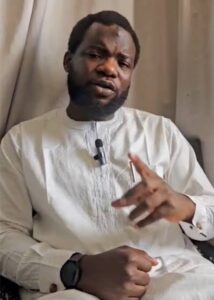
“So, drugs will not help you change the terrain of the brain. It is individualised support that is going to be structural, that is going to do that. So, in fairness, you cannot blame parents, because the average parent wants to wake up in the morning and have a child who is behaving typically. In fairness to them, they will go the extra mile.
“Regardless of country or socio-economic status, there is a level of stress that comes with having children with special needs, including ASD. However, we should know that the support that is most important, viable, and sustainable is therapeutic because they are systematic.”
On how to go about it, Mr Abdulrasak highlighted the need for diagnosis to tell the level of severity, as severity will tell the level of intervention, and the level of intervention will determine who is going to do the intervention either a speech therapist, a behavioural therapist, a psychologist, social worker, medical practitioner, or neurologist.
He also urged schools to know the limit of what they can handle. According to him, not all schools are inclusive.
“If you do not have the structure and infrastructure to handle and manage children with special needs, please don’t do it because it is not a money-making endeavour but a life-saving and life support endeavour.”


